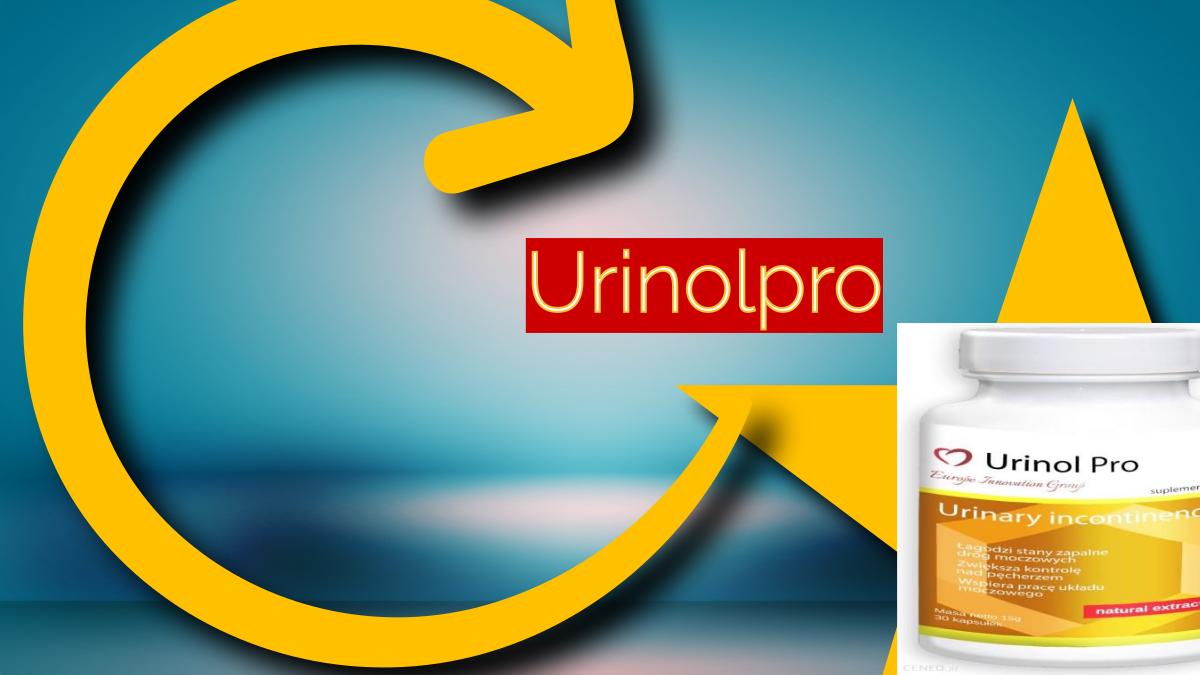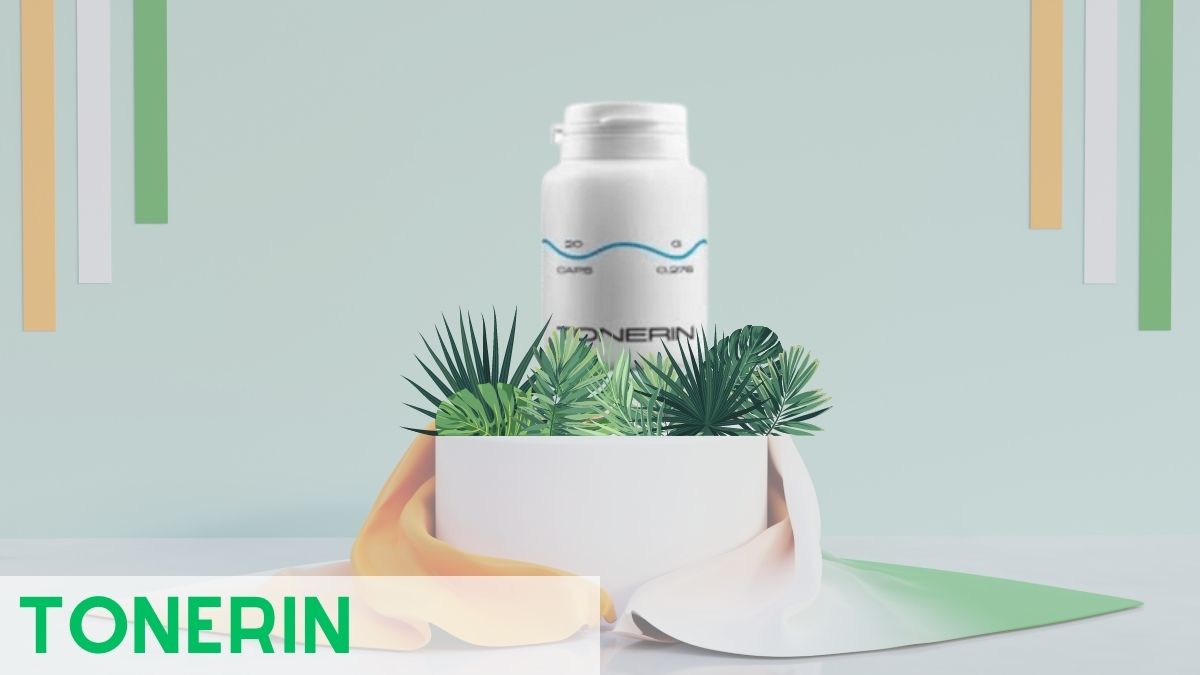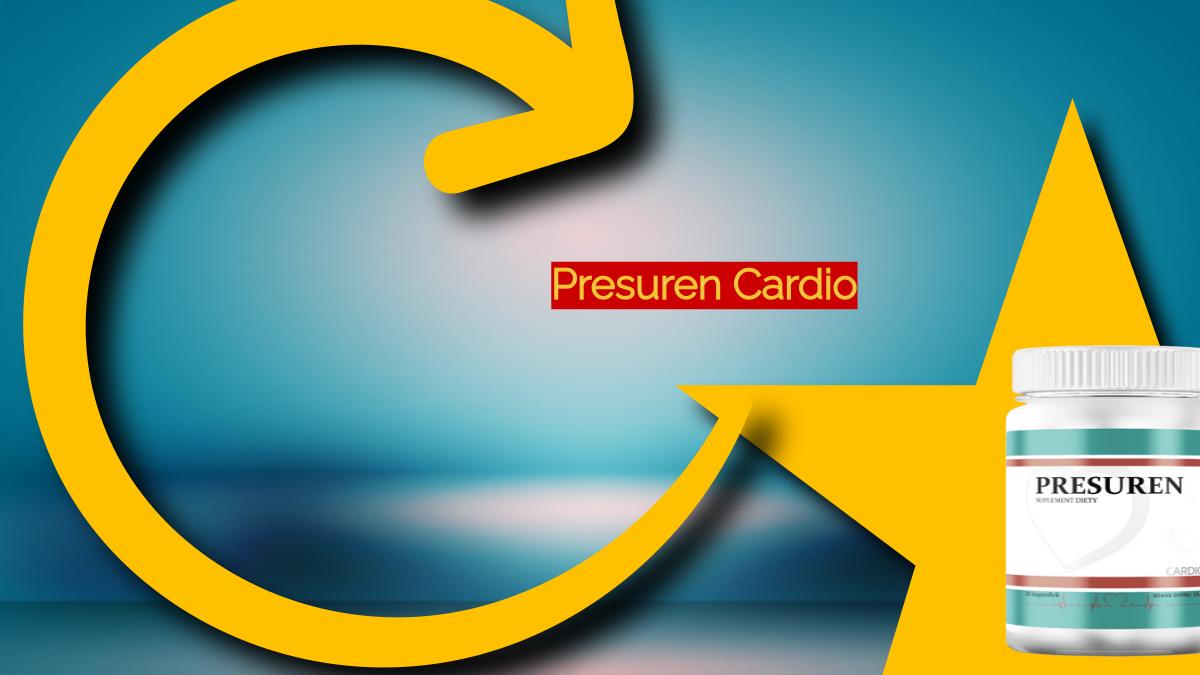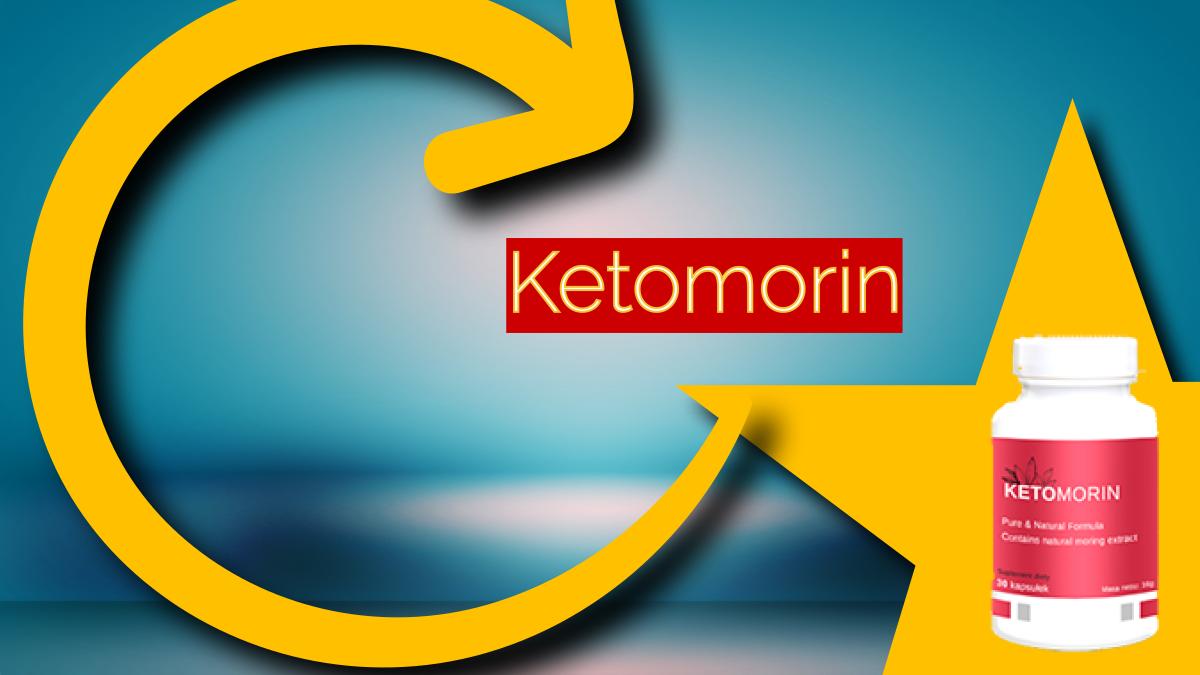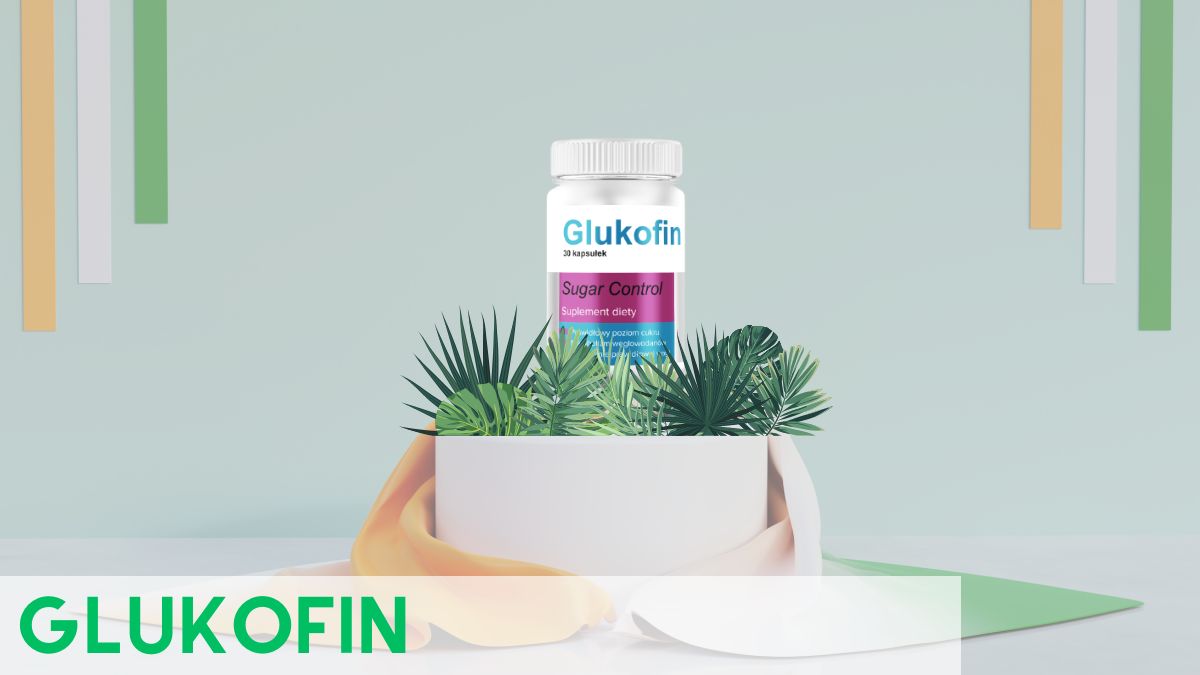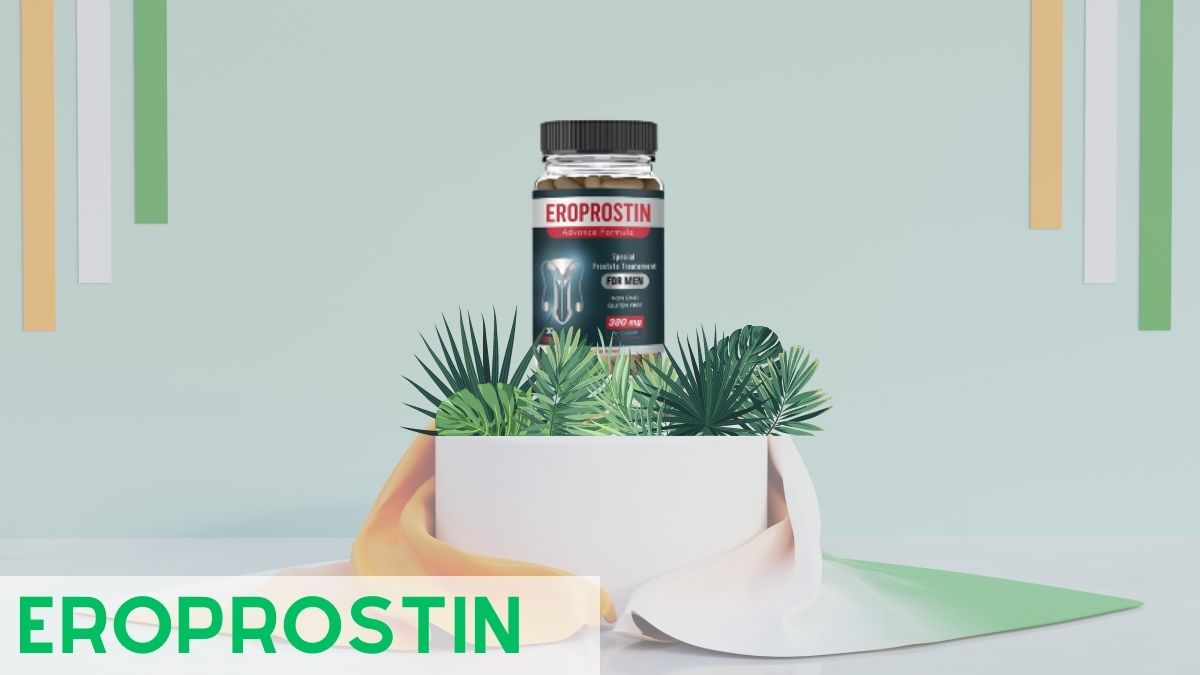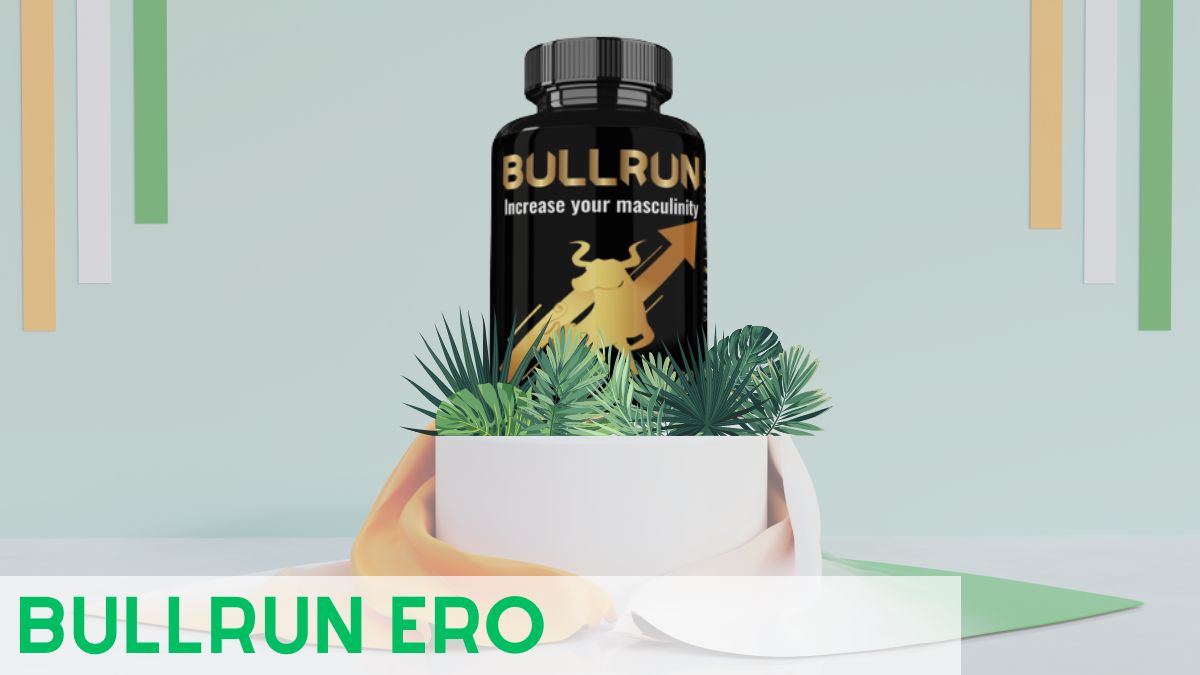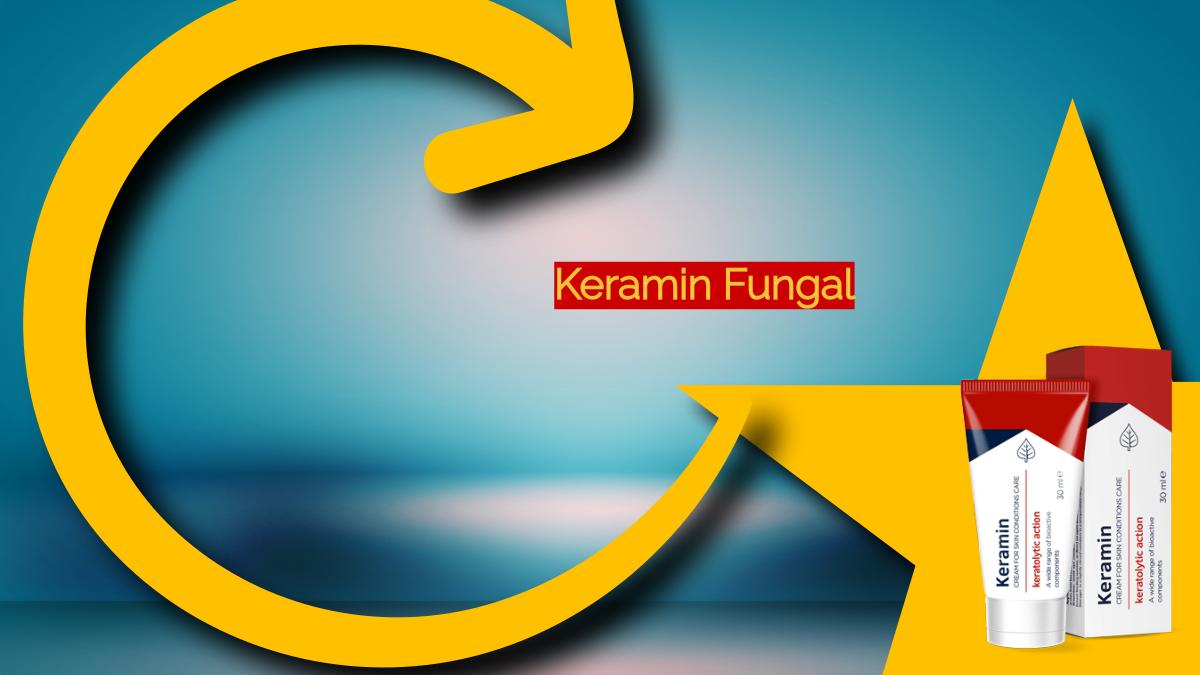Vitasimil – kompleks na odchudzanie
Vitasimil – kompleks na odchudzanie Zmagając się z moją wagą od lat, szukałem rozwiązania, które mogłoby w końcu pomóc mi zrzucić te dodatkowe kilogramy. Niezliczone diety i programy ćwiczeń sprawiły, że poczułem się pokonany, aż natknąłem się na Vitasimil – kompleks na odchudzanie, który naprawdę spełnia swoje obietnice. Ten naukowo opracowany suplement jest jak tajna…
Vigrafast – tabletki na potencję
Vigrafast – Tabletki na Potencję Czy zastanawiałeś się kiedyś, czy istnieje pigułka, która naprawdę może zwiększyć męską potencję? Jako mężczyzna, który w przeszłości zmagał się z problemami z potencją, z całą pewnością mogę utożsamić się z chęcią rozwiązania, które faktycznie działa. Chociaż wiele produktów twierdzi, że oferuje odpowiedź, oddzielenie faktów od fikcji może być trudne.…
Ładuję…
Vermixin – Tabletki do walki z pasożytami Na Vermixin natknąłem się, gdy zmagałem się z uporczywymi problemami żołądkowymi i niskim poziomem energii. Okazało się, że nieświadomie gościłem pasożyty w jelitach. Kiedy zacząłem brać Vermixin, zauważyłem znaczną poprawę ogólnego stanu zdrowia. Dzięki mieszance naturalnych ekstraktów, takich jak czosnek, pestki dyni, papaja, korzeń mniszka lekarskiego i imbir,…
Steplex – maść na stawy
Steplex – spray na bóle stawów Walcząc od lat z bólem stawów, znam z pierwszej ręki wyzwania, jakie niesie to za sobą w moim codziennym życiu. Dlatego chętnie podzielę się z Wami moimi doświadczeniami dotyczącymi Steplexu – sprayu, który zmienił reguły gry w leczeniu mojego bólu stawów. Steplex działa jak łagodzący balsam, opracowany specjalnie z…
Revitaprost – tabletki na prostatę
Revitaprost: Naturalne rozwiązanie dla zdrowia prostaty Mam ekscytującą wiadomość dla wszystkich mężczyzn, którzy chcą przejąć kontrolę nad zdrowiem swojej prostaty. Przedstawiamy Revitaprost, naturalne rozwiązanie zaprojektowane specjalnie w celu wspierania i promowania ogólnej funkcji prostaty. Wraz z wiekiem problemy związane z prostatą, takie jak BPH i zapalenie gruczołu krokowego, stają się coraz częstsze. Ale dzięki Revitaprostowi…
Potencialex – tabletki na potencję
Potencialex: Naturalny suplement libido dla mężczyzn – zwiększ pożądanie i intymność Hej! Opowiem Wam o Potencialex, naturalnym suplemencie na libido opracowanym specjalnie dla mężczyzn. To jak turbodoładowanie pożądania i intymności. Suplement ten rozwiązuje typowe problemy, takie jak starzenie się, stres i zła dieta, które mogą osłabić Twoją motywację. Dzięki unikalnej formule i pozytywnym opiniom w…
Ocuvit – tabletki dla oczu
Ocuvita – Tabletki na poprawę wzroku Hej, drodzy poszukiwacze wzroku! Czy jesteś zmęczony mrużeniem oczu na ekranie komputera lub trudnościami z czytaniem drobnego druku w menu? Cóż, nie martw się, bo natknąłem się na rozwiązanie, które potencjalnie może poprawić Twój wzrok – pigułki Ocuvita. Wiem, co myślisz – czy zwykła pigułka naprawdę może poprawić mój…
Inspilar – tabletki na cukrzycę
Inspilar – Tabletki na Cukrzycę Niczym rycerz w lśniącej zbroi, Inspilar jest potężnym sojusznikiem, którego odkryłem w mojej walce z cukrzycą. Dzięki unikalnej mieszance naturalnych składników ten suplement diety obiecuje regulować poziom cukru we krwi i poprawiać wrażliwość na insulinę. Ale czy jest to zgodne z szumem medialnym? Podczas tej dyskusji omówimy naukę stojącą za…
Exofeet Oil – krople na grzybicę
Exofeet Oil – krople na grzybicę stóp Czy zastanawiałeś się kiedyś, czy istnieje rozwiązanie, które naprawdę może wyeliminować dyskomfort związany z grzybicą stóp? Cóż, jestem tutaj, aby powiedzieć Ci, że Exofeet Oil – krople na Tinea Pedis może być odpowiedzią, której szukasz. Dzięki innowacyjnej formule i silnym składnikom pochodzenia roślinnego ten niezwykły produkt ma na…
Dr Merritz na problem z grzybicą paznokci
Dr. Merritz – Maść przeciwgrzybicza Mówią, że „lepiej zapobiegać niż leczyć”, a jeśli chodzi o pielęgnację paznokci, to powiedzenie nie może być bardziej prawdziwe. Dzisiaj chcę omówić innowacyjny produkt, który przykuł moją uwagę – Dr. Merritz – Maść Przeciwgrzybicza. Jego unikalna formuła i naturalne składniki sprawiły, że zmienił zasady gry w świecie pielęgnacji paznokci. Ale…
Potencialex – tabletki na potencję
Polegaj na Potencialex w celu zwiększenia potencji Jako osoba, która chce zwiększyć swoją potencję, polegam na Potencialex. Ten potężny suplement odmienił moje życie, zwiększając moją pewność siebie i wydajność. Dzięki unikalnej mieszance składników Potencialex działa cuda, zwiększając przepływ krwi i poprawiając wytrzymałość. Byłem świadkiem niesamowitych rezultatów i nie jestem sam. Niezliczeni klienci podzielili się swoimi…
Cardio Life – tabletki na nadciśnienie
Cardio Life – Tabletki na problemy z sercem Sama zmagałam się z problemami z sercem i wiem z pierwszej ręki, jak szukać skutecznych rozwiązań, które są bezpieczne i naturalne. Dlatego jestem tutaj, aby omówić Cardio Life – potencjalną zmianę zasad gry w dziedzinie zdrowia serca. Tabletki te zostały specjalnie zaprojektowane, aby wspomagać funkcjonowanie układu sercowo-naczyniowego…
Cardiform – tabletki na nadciśnienie
Cardiform – Tabletki na nadciśnienie Niczym ratunek dla osób zmagających się z wysokim ciśnieniem krwi, Cardiform – Tabletki na nadciśnienie oferują promyk nadziei w walce z tą cichą, ale niebezpieczną chorobą. Jako osoba, która na własne oczy widziała szkodliwe skutki nadciśnienia, rozumiem pilność i znaczenie znalezienia skutecznych rozwiązań. Podczas tej dyskusji zbadamy niezwykłe zalety Cardiform,…
Black Latte – napój na odchudzanie
Black Latte – kawa na odchudzanie Podobnie jak promień słońca przebijający się przez chmury w ponury dzień, Black Latte – kawa na odchudzanie – oferuje promyk nadziei dla tych z nas, którzy zmagają się z pozbyciem się uporczywych kilogramów. Dzięki unikalnej mieszance węgla aktywnego i olejków MCT, Black Latte obiecuje pobudzić Twój metabolizm, ograniczyć apetyt…
Prostoxalen – tabletki | kapsułki na prostatę
Naturalny suplement zdrowotny prostaty: przegląd Prostoksalenu Chciałem podzielić się swoim doświadczeniem z Prostoxalenem, naturalnym suplementem zdrowotnym prostaty, który naprawdę zmienił moje życie. Ten niesamowity suplement ma na celu zmniejszenie stanu zapalnego i zmniejszenie rozmiaru prostaty, zapewniając ulgę w objawach i poprawę ogólnego stanu zdrowia. Osobiście zaobserwowałem zmniejszenie bólu i obrzęku, a także poprawę oddawania moczu,…
Matcha Slim – herbata na odchudzanie
Matcha Slim: Skuteczna kuracja wyszczuplająca w celu ukierunkowanej utraty tkanki tłuszczowej No hej! Szukasz skutecznej kuracji odchudzającej, która będzie ukierunkowana na uporczywe obszary tkanki tłuszczowej? Cóż, nie szukaj dalej, ponieważ Matcha Slim jest tutaj, aby Ci pomóc! Dzięki silnej mieszance naturalnych składników Matcha Slim rozkłada tłuszcz z brzucha i bioder, blokuje enzym lipazę i ogranicza…
Insumed – tabletki na cukrzycę
Insumed – Tabletki normalizujące cukier Kiedy patrzyłem, jak słońce zachodzi nad pagórkami, rzucając ciepły złoty blask na pola, nie mogłem przestać myśleć o delikatnej równowadze naszych ciał, szczególnie jeśli chodzi o kontrolowanie poziomu cukru we krwi. To tak, jakby nasze ciała były precyzyjnie dostrojonym instrumentem, potrzebującym odpowiedniej ilości cukru do prawidłowego funkcjonowania. Ale co się…
Cystonette – tabletki na nietrzymanie moczu
Cystonette – Tabletki na problemy z oddawaniem moczu Zmagając się z częstym oddawaniem moczu i towarzyszącym mu dyskomfortem, rozumiem frustrację związaną z koniecznością ciągłego planowania dnia z uwzględnieniem przerw na toaletę. Dlatego byłam zachwycona, gdy odkryłam Cystonette – tabletki na problemy z oddawaniem moczu. Tabletki te zostały specjalnie zaprojektowane do zwalczania zapalenia pęcherza moczowego i…
Aerflow – aparat na chrapanie
Aerflow – Ortezy na chrapanie Po latach zmagania się z chrapaniem byłem zdumiony, gdy odkryłem rewolucyjne rozwiązanie, które odmieniło mój sen i ogólne samopoczucie – Aerflow. Ten rewolucyjny produkt bezpośrednio rozwiązuje problem chrapania, zapewniając długotrwałe rozwiązanie. Umieszczając Aerflow w zatokach nosowych, zapewnia nieprzerwany przepływ powietrza podczas snu, eliminując potrzebę oddychania przez usta i skutecznie powstrzymując…
Xtrabig – tabletki na powiększanie penisa
XTRABIG – Tabletki na zdrowie mężczyzn Table of Contents Kluczowe wnioski Co to jest Xtrabig? Korzyści z suplementu Xtrabig Ekstremalne składniki Xtrabig: Skutki uboczne i przeciwwskazania Jak stosować suplement Xtrabig Często Zadawane Pytania Wniosek Czy są jakieś potencjalne interakcje pomiędzy Xtrabigiem a innymi lekami lub suplementami? Jak długo zwykle trzeba czekać na rezultaty stosowania leku…
Visulan Complex – tabletki na poprawę wzroku
VISULAN COMPLEX – Tabletki na poprawę wzroku Table of Contents Kluczowe wnioski Znaczenie zdrowia oczu Zrozumienie kompleksu Visulan Jak działa kompleks Visulan Kluczowe składniki kompleksu Visulan Korzystanie z kompleksu Visulan: instrukcje i środki ostrożności Korzyści z kompleksu Visulan Cena i dostępność kompleksu Visulan Podsumowanie: Moc kompleksu Visulan Recenzje użytkowników: prawdziwi ludzie, prawdziwe wyniki Często Zadawane…
Vigordic – tabletki na potencję
Vigordic – Tabletki na Potencję Table of Contents Kluczowe wnioski Zrozumienie znaczenia zdrowia seksualnego Typowe problemy seksualne, z którymi borykają się mężczyźni Rola Vigordic w poprawie potencji Unikalna kompozycja kapsułek Vigordic Korzyści z korzenia Sarsaparilla dla rozwoju mięśni i piękna seksualnego Jak Buzdyan stymuluje stymulację seksualną i męskość Znaczenie ziela owsa we wspieraniu męskich dolegliwości…
Urinol Pro – tabletki na problemy z oddawaniem moczu
Urinol Pro – Tabletki na problemy z oddawaniem moczu Table of Contents Co to jest Urinol Pro? Zrozumienie nietrzymania moczu Skład Urinolu Pro Jak działa Urinol Pro Korzyści ze stosowania Urinolu Pro Porównanie z innymi produktami na nietrzymanie moczu Ceny i gdzie kupić Urinol Pro Recenzje i referencje klientów Często Zadawane Pytania Wniosek Przyczyny nietrzymania…
Ultra Cardiox – tabletki na nadciśnienie
Ultra Cardiox – Tabletki na nadciśnienie Table of Contents Co to jest Ultra Cardiox? Korzyści z Ultra Cardiox Jak Ultra Cardiox pomaga obniżyć nadciśnienie Składniki w Ultra Cardiox Jak wziąć Ultra Cardiox Potencjalne skutki uboczne Ultra Cardiox Gdzie kupić Ultra Cardiox Często Zadawane Pytania Wniosek Czy są jakieś znane interakcje pomiędzy Ultra Cardiox a innymi…
Tonerin – tabletki na nadciśnienie
Tonerin – Tabletki Normalizujące Ciśnienie Krwi Table of Contents Co to jest toneryna? Korzyści toneryny na ciśnienie krwi Jak działa toneryna? Instrukcje dotyczące dawkowania i stosowania toneryny Potencjalne skutki uboczne i środki ostrożności związane ze stosowaniem toneryny Często Zadawane Pytania Wniosek Czy tonerynę można stosować w leczeniu zatkanych naczyń krwionośnych? Czy Tonerin skutecznie obniża poziom…
Skinatrin – spray na grzybicę
SKINATRIN – Spray na grzybicę Table of Contents Kluczowe wnioski Jak Skinatrin zwalcza grzybicę Kluczowe składniki Skinatriny Mechanizm działania skinatryny Skuteczność Skinatryny w leczeniu grzybicy Jak stosować Skinatrin w leczeniu grzybicy Opinie użytkowników na temat Skinatriny do leczenia grzybicy Często Zadawane Pytania Wniosek Techniki stosowania Czas trwania leczenia Czy Skinatrin jest skuteczny tylko przeciwko grzybicy,…
Reliver – tabletki na wątrobe
Reliver – Tabletki na wątrobę Table of Contents Znaczenie zdrowia wątroby Korzyści z suplementu diety Reliver Skład tabletek na wątrobę Zalety tabletek łagodzących wątrobę Jak zażywać lek Reliver, aby uzyskać optymalne rezultaty Często Zadawane Pytania Wniosek Czy są jakieś znane interakcje leków z tabletkami na wątrobę? Czy tabletki na wątrobę Reliver mogą przyjmować kobiety w…
Proulgan – tabletki na problem z oddawaniem moczu
PROULGAN – Tabletki na problemy z oddawaniem moczu Table of Contents Kluczowe wnioski Co to jest Proulgan? Korzyści ze stosowania suplementu diety Proulgan Skład Proulgana Skutki uboczne i przeciwwskazania Jak używać Proulgana Gdzie kupić i cena Proulgana Opinie na forum na temat Proulgana Często Zadawane Pytania Wniosek Naturalne składniki pochodzenia roślinnego Właściwości wspierające zdrowie Bez…
Prostavin Plus – tabletki na stawy
Prostavin Plus – Tabletki na Stawy Table of Contents Co to jest Prostavin Plus? Skład Prostavin Plus Działanie Prostavin Plus Skuteczność Prostavin Plus Instrukcje użytkowania Prostavin Plus Recenzje użytkowników dotyczące Prostavin Plus Często Zadawane Pytania Wniosek Rekonstrukcja chrząstki stawowej Redukcja stanu zapalnego Zwiększona produkcja kolagenu Pozytywne doświadczenia użytkowników Poprawiona elastyczność stawów Zmniejszenie bólu i stanu…
Presuren Cardio – tabletki na nadciśnienie
PRESUREN CARDIO – Tabletki na nadciśnienie Table of Contents Kluczowe wnioski Zrozumienie nadciśnienia Kluczowe składniki Presuren Cardio Jak Presuren Cardio reguluje ciśnienie krwi Potencjalne korzyści ze stosowania Presuren Cardio Potencjalne skutki uboczne i środki ostrożności Recenzje i referencje klientów Gdzie kupić Presuren Cardio i informacje o cenach Często Zadawane Pytania Wniosek Korzyści i efekty składników…
Paraxan – tabletki na oczyszczanie
Paraxan – Tabletki na Oczyszczanie Ciała Table of Contents Kluczowe wnioski Paraxan: silne i naturalne rozwiązanie oczyszczające Niebezpieczeństwa infekcji pasożytniczych Typowe objawy inwazji pasożytów Znaczenie eliminacji pasożytów Jak działa Paraxan? Skuteczne składniki Paraxanu Referencje: prawdziwi ludzie, prawdziwe wyniki Paraxan: rozwiązanie zalecane przez ekspertów Paraxan: Twój must-have do oczyszczania ciała Często Zadawane Pytania Wniosek Mechanizm akcji…
Oculosin – tabletki na oczy
Oculosin – Tabletki na oczy Table of Contents Kluczowe wnioski Przegląd produktów Znaczenie zdrowia oczu Składniki Oculozyny Właściwości funkcjonalne Jak działa Oculosin Jak używać Oculosin Potencjalne skutki uboczne Gdzie kupić i ceny Często Zadawane Pytania Wniosek Korzyści dla zdrowia oczu Wykorzystane naturalne składniki Potencjalne skutki uboczne Soczewka ochronna na oczy Łagodzenie objawów suchości Regulacja ciśnienia…
Normadex – tabletki na pasożyty
Normadex – Tabletki do walki z pasożytami Table of Contents Kluczowe wnioski Co to jest Normadex Potężne składniki Normadexu Jak Normadex walczy z pasożytami Powszechne choroby pasożytnicze Oznaki i objawy infekcji pasożytniczej Znaczenie leczenia infekcji pasożytniczych Wskazówki dotyczące przyjmowania tabletek Normadex Często Zadawane Pytania Wniosek Ocena skuteczności składników Potencjalne skutki uboczne Czy są jakieś skutki…
Moring Slim – tabletki na odchudzanie
Moring Slim – Tabletki Na Odchudzanie Table of Contents Kluczowe wnioski Korzyści z Moring Slim Jak działa Moring Slim Zalecane użycie Moring Slim Potencjalne skutki uboczne Moring Slim Bezpieczne zakupy Moring Slim Doświadczenia prawdziwych ludzi z Moring Slim Ważne uwagi przed wypróbowaniem Moring Slim Często Zadawane Pytania Wniosek Korzyści związane ze zwiększeniem metabolizmu Wsparcie kontroli…
Ketomorin – tabletki na odchudzanie
KETOMORIN – Tabletki na odchudzanie Table of Contents Kluczowe wnioski Jak działa Ketomoryna Korzyści z Ketomoryny Kluczowe składniki Ketomoryny Historie sukcesu z Ketomorinem Jak używać Ketomoryny Ketomorin kontra. Inne tabletki na odchudzanie Często zadawane pytania dotyczące ketomoriny Gdzie kupić Ketomorin Ostatnie przemyślenia na temat Ketomoryny Często Zadawane Pytania Wniosek Opcje zakupu Dostępność i zapasy Skuteczna…
Keto Matcha Blue – napój na odchudzanie
Keto Matcha Blue – Proszek Wyszczuplający Table of Contents Kluczowe wnioski Czym jest Keto Machta? Korzyści z Keto Machty Jak używać Keto Machty Referencje klientów na temat Keto Machta Gdzie kupić Keto Machta Często Zadawane Pytania Wniosek Czy są jakieś potencjalne skutki uboczne lub ryzyko związane ze stosowaniem Keto Machta? Czy Keto Machta może być…
Insunol – krople na cukrzycę
Insunol – Krople na Kontrolę Cukru Table of Contents Kluczowe wnioski Wpływ cukrzycy na zdrowie na świecie Zrozumienie powikłań cukrzycy Korzyści ze stosowania Insunolu w leczeniu cukrzycy Kluczowe składniki Insunolu i ich działanie Opinia eksperta na temat skuteczności Insunolu Prawdziwe historie sukcesu z Insunolem Jak używać Insunolu, aby uzyskać optymalne wyniki Często Zadawane Pytania Wniosek…
Hairstim – spray na wzrost włosów
Hairstim – Spray na porost włosów Table of Contents Korzyści ze sprayu Hairstim Jak używać Hairstim do wzrostu włosów Kluczowe składniki sprayu Hairstim Bezpieczeństwo i środki ostrożności podczas używania Hairstim Gdzie kupić Hairstim i informacje o cenach Często Zadawane Pytania Wniosek Czy Hairstim nadaje się do wszystkich rodzajów włosów, w tym kręconych i teksturowanych? Czy…
Glukofin – tabletki na cukrzycę
Glukofin – Tabletki na Cukrzycę Table of Contents Kluczowe wnioski Wprowadzenie do Glukofinu Korzyści Glukofinu w leczeniu cukrzycy Glukofin: Regulacja poziomu cukru we krwi Glukofin i jego wpływ na redukcję masy ciała Glukofin: Ochrona narządów wewnętrznych i naczyń krwionośnych Rola Glukofinu w poprawie metabolizmu Referencje: Zadowoleni klienci dzielą się swoimi doświadczeniami z Glukofinem Badania kliniczne…
Glikotril – tabletki na cukrzycę
Glikotril – Tabletki na Stabilizację Cukru Table of Contents Kluczowe wnioski Problem z terapią metforminą Glikotril: rozwiązanie alternatywne Jak Glikotril stabilizuje poziom cukru we krwi Korzyści z Glikotrilu dla diabetyków Jak rozpocząć przyjmowanie Glikotrilu Często Zadawane Pytania Wniosek Jakie są potencjalne ryzyko i skutki uboczne stosowania glikotrilu w celu stabilizacji poziomu cukru we krwi? Czym…
Getshape Beauty Eyes – serum wydłużające rzęsy
Getshape Beauty Eyes – Serum wydłużające rzęsy Table of Contents Kluczowe wnioski Kluczowe zalety serum do oczu Getshape Beauty Eyes Składniki sprzyjające wydłużaniu rzęs Jak nakładać serum Getshape Beauty Eyes Wskazówki, jak zmaksymalizować wzrost rzęs za pomocą serum Często zadawane pytania dotyczące serum wydłużających rzęsy Środki ostrożności i ryzyko związane ze stosowaniem serum do oczu…
Fungent – maść na grzybicę
Fungent – Krem przeciwgrzybiczy Table of Contents Kluczowe wnioski Przyczyny i objawy infekcji grzybiczych Korzyści ze stosowania kremu przeciwgrzybiczego Jak używać Fungentu, aby uzyskać skuteczne rezultaty Prawdziwe recenzje klientów na temat kremu Fungent Zadbaj o swoje stopy za pomocą Fungenta Często Zadawane Pytania Wniosek Czy są jakieś skutki uboczne stosowania kremu przeciwgrzybiczego? Czy krem przeciwgrzybiczy…
Eroprostin – tabletki na prostatę
EROPROSTIN – Tabletki na Prostatę Table of Contents Objawy prostaty i ich wpływ Przełom w leczeniu prostaty Korzyści z ekstraktu z Palmy Sabałowej Długoterminowy ekstrakt z kłącza i jego działanie Ekstrakt z zmielonej części brokułów Siła inuliny w zdrowiu prostaty Ekstrakt z granatu i jego zalety dla prostaty Często Zadawane Pytania Wniosek Inulina i zdrowie…
Diabetins Max – tabletki na cukrzycę
Diabetins Max – Tabletki na cukrzycę Table of Contents Kluczowe wnioski Niebezpieczeństwa cukrzycy Zrozumienie cukrzycy typu 2 Przedstawiamy Diabetins Max Jak działa Diabetins Max Gdzie zdobyć Diabetins Max Często Zadawane Pytania Wniosek Czy są jakieś skutki uboczne lub negatywne konsekwencje przyjmowania Diabetins Max? Czy Diabetins Max mogą stosować także osoby chore na cukrzycę typu 1?…
Desintox – tabletki na pasożyty
Desintox – Tabletki do walki z pasożytami Table of Contents Kluczowe wnioski 4%99sto%C5%9B%C4%87-wyst%C4%99powania-infekcji-paso%C5%BCytniczych”>Częstość występowania infekcji pasożytniczych Typowe objawy infekcji pasożytniczej 4%85-si%C4%99-do-organizmu”>Jak pasożyty dostają się do organizmu 4%99stsze-paso%C5%BCyty-w-polsce”>Najczęstsze pasożyty w Polsce Widoczne i odczuwalne objawy infekcji pasożytniczej Znaki ostrzegawcze infekcji pasożytniczej 4%85-desintoxu”>Pokonanie pasożytów za pomocą Desintoxu Siła Desintoxu w eliminacji pasożytów 4-referencje-od-u%C5%BCytkownik%C3%B3w-desintox”>Referencje od użytkowników Desintox 4%99sto-zadawane-pytania”>Często…
Cystenon – tabletki na zapalenie pęcherza
Cystenon – Cistis Table of Contents Kluczowe wnioski Przyczyny zapalenia pęcherza moczowego Objawy zapalenia pęcherza moczowego Naturalne środki na zapalenie pęcherza moczowego Korzyści z Cystenonu Jak używać Cystenonu Często Zadawane Pytania Wniosek Czy podczas stosowania Cystenonu występują jakieś potencjalne skutki uboczne lub interakcje z innymi lekami? Czy Cystenon mogą stosować kobiety w ciąży lub karmiące…
Cardione – tabletki na nadciśnienie
Cardione – Tabletki na problemy z sercem Table of Contents Kluczowe wnioski Globalny wpływ chorób układu krążenia Zrozumienie zagrożeń związanych z nadciśnieniem Czynniki ryzyka problemów z sercem Trzy etapy działania Cardione Naturalna i wysoce wydajna kompozycja Cardione Wyniki badań klinicznych i opinia eksperta Często Zadawane Pytania Wniosek Genetyczne predyspozycje do problemów z sercem Wpływ wyborów…
Cardio A Plus – krople na nadciśnienie
Cardio a – Krople na nadciśnienie Table of Contents Kluczowe wnioski Co to jest Cardio A? Zrozumienie nadciśnienia Jak Cardio A pomaga obniżyć ciśnienie krwi Rola Cardio A w zdrowiu układu sercowo-naczyniowego Kluczowe składniki Cardio A na nadciśnienie Dawkowanie i stosowanie Cardio A w leczeniu nadciśnienia Prawdziwe doświadczenia użytkowników z kardio na nadciśnienie Często Zadawane…
Bullrun Ero – tabletki na potencję
Bullrun Ero – Tabletki na Potencję Table of Contents Problem impotencji związanej z wiekiem Słabość polskiej medycyny Zrozumienie przyczyn impotencji związanej z wiekiem Rola Bullrun w przywracaniu naturalnej mocy Mechanizm działania Bullrun Skuteczność Bullrun na impotencję związaną z wiekiem Przyszłość leczenia impotencji w Polsce Często Zadawane Pytania Wniosek Zmiany hormonalne związane z wiekiem Wpływ na…
Alfa Lover – żel na libido
Alfa Lover – Żel poprawiający doznania seksualne Table of Contents Kluczowe wnioski Jak Alfa Lover wzmacnia doznania seksualne Potężne składniki Alfa Lover Instrukcje stosowania żelu Alfa Lover Korzyści z używania Alfa Lover do doznań seksualnych Gdzie kupić żel Alfa Lover Pozytywne opinie użytkowników na temat żelu Alfa Lover Często Zadawane Pytania Wniosek Czy są jakieś…
Acaiberry 900 – tabletki na odchudzanie
Acaiberry 900 – Tabletki Na Odchudzanie Table of Contents Kluczowe wnioski Moc Jagód Acai 900 Jak jagody Acai 900 wspomagają utratę wagi Nauka o Jagodach Acai 900 Dlaczego Acai Berry 900 jest bezpieczny i skuteczny Kluczowe zalety jagód Acai 900 Jak Acai Berry 900 odtruwa organizm Zwiększanie odporności dzięki jagodom Acai 900 Zwiększenie skupienia psychicznego…
A Cardin – tabletki na nadciśnienie
A Cardin – Tabletki na nadciśnienie Table of Contents Kluczowe wnioski Co to jest A-Cardin? Jak działa A-Cardin? Składniki A-cardina Skutki uboczne i przeciwwskazania A-Cardin Gdzie kupić A-Cardin i ceny Często Zadawane Pytania Wniosek Czy istnieją jakieś ograniczenia wiekowe dotyczące korzystania z A-Cardin? Czy lek A-Cardin można bezpiecznie stosować z innymi lekami na nadciśnienie? Czy…
Black Latte – napój na odchudzanie
Black Latte – Kawa na odchudzanie Table of Contents Kluczowe wnioski Korzyści z łatwej czarnej latte Jak łatwo działa czarna latte Moc węgla aktywowanego Detoksykacja za pomocą Easy Black Latte Olej MCT i utrata masy ciała Referencje i recenzje Łatwa kompozycja czarnej latte Wartość odżywcza Easy Black Latte Informacje o użytkowaniu i przechowywaniu Często Zadawane…
Toxic Off – tabletki na pasożyty
Toxic off – Tabletki do walki z pasożytami Table of Contents Kluczowe wnioski Zrozumienie infekcji pasożytniczych Oznaki infekcji pasożytniczej Korzyści z toksycznego wyłączenia Naturalne składniki Toxic Off Skuteczność Toxic Off Referencje ekspertów Opinie klientów Informacje o autentyczności i zamawianiu Często Zadawane Pytania Wniosek Objawy infekcji pasożytniczej Zapobieganie i wczesne wykrywanie Naturalne i skuteczne leczenie Unikalna…
Deluron – tabletki na prostatę
Deluron – Tabletki na zapalenie prostaty Table of Contents Kluczowe wnioski Objawy zapalenia gruczołu krokowego Składniki Delurona Skuteczność Delurona Opinia eksperta Referencje klientów Często Zadawane Pytania Wniosek Czy podczas stosowania leku Deluron występują jakieś potencjalne skutki uboczne lub interakcje z innymi lekami? Czy Deluron można stosować zapobiegawczo w przypadku zapalenia gruczołu krokowego, czy tylko w…
Proflexen – tabletki na stawy
Proflexen – Tabletki na stawy Table of Contents Kluczowe wnioski Zrozumienie bólu stawów Przyczyny dyskomfortu stawów Korzyści ze stosowania tabletek Flexen Składniki w Flexen Jak działa Flexen Dawkowanie i użycie Bezpieczeństwo i skutki uboczne Recenzje i referencje klientów Gdzie kupić Flexen Często Zadawane Pytania Wniosek Zużycie związane z wiekiem Zapalenie i obrzęk Nadużycie i kontuzje…
Fibre Select – proszek na oczyszczenie organizmu
Fibre Select – Proszek do Oczyszczania Ciała Table of Contents Kluczowe wnioski Co to jest wybór błonnika Korzyści z Fibre Select Jak korzystać z Fibre Select Składniki w Fibre Select Zrozumienie oczyszczania ciała Wybór błonnika i zdrowie układu trawiennego Włączanie błonnika do swojej rutyny Wskazówki dotyczące maksymalizacji efektów wyboru światłowodu Często Zadawane Pytania Wniosek Lepsze…
Yes Lashes – odżywka do rzęs
YES Lashes – Odżywka do rzęs Table of Contents Kluczowe wnioski Nauka kryjąca się za rzęsami YES Korzyści ze stosowania rzęs YES Jak nakładać rzęsy YES Składniki YES Lashes TAK Rzęsy dla wrażliwych oczu Osiągnięcie długich i soczystych rzęs Rzęsy YES – opinie klientów Często Zadawane Pytania Wniosek Poprawiona długość rzęs Zdrowsze, pełniejsze rzęsy Właściwa…
Vigordic – tabletki na potencję
Vigordic – Tabletki na Potencję Table of Contents Kluczowe wnioski Zrozumienie potencji seksualnej Unikalna kompozycja Vigordic Znaczenie rozwiązywania problemów seksualnych Referencje od zadowolonych klientów Kluczowe składniki na potencję Wskazówki dotyczące korzystania z Vigordic Osiąganie witalności seksualnej dzięki Vigordic Często Zadawane Pytania Wniosek Ziołowe wzmocnienie mocy Składniki dla zdrowia seksualnego Skuteczna kompozycja Vigordic Kwestia zdrowia seksualnego…
Nicozero – spray na rzucanie palenia
Nicozero – Spray przeciw paleniu Table of Contents Kluczowe wnioski Uzależnienie od nikotyny Jak działa Nicozero Nicozero Składniki i korzyści Referencje i opinie Oryginalne Nicozero i często zadawane pytania Często Zadawane Pytania Wniosek Czy podczas rzucania palenia Nicozero wystąpią jakiekolwiek objawy odstawienia? Czy Nicozero mogą stosować osoby z chorobami współistniejącymi? Po jakim czasie Nicozero zaczyna…
Acustal – spray na słuch
Acustal – Spray do ochrony słuchu Table of Contents Kluczowe wnioski Zrozumienie utraty słuchu i szumu w uszach Jak Acustal przywraca słuch Korzyści z kompozycji akustycznej Wysoka klasa konsumencka dla firmy Acustal Opinia eksperta na temat Acustal Referencje klientów dotyczące firmy Acustal Często Zadawane Pytania Wniosek Acustal poprawia słuch Acustal uspokaja układ nerwowy Acustal poprawia…
Keramin Fungal – krem przeciw grzybicy
Keramin Fungal – Krem Przeciw Grzybicy Table of Contents Kluczowe wnioski Zrozumienie kremu grzybiczego Keramin Kluczowe składniki i ich zalety Instrukcje stosowania Keraminu Skuteczność Keraminy Przeciw Grzybicy Bezpieczeństwo i testowanie Keraminy Często Zadawane Pytania Wniosek Czy krem keraminowy można stosować na inne infekcje grzybicze oprócz grzybicy? Czy Keramin Fungal Cream można bezpiecznie stosować u dzieci…
Removio – maść na brodawczaki
Removio – Żel przeciw wirusowi brodawczaka do walki z wirusem brodawczaka Table of Contents Kluczowe wnioski Zrozumienie wirusa brodawczaka i jego zagrożeń Jak działa żel Removio Badania kliniczne i zalecenia ekspertów Historie sukcesu klientów Łatwy proces zamawiania Często Zadawane Pytania Wniosek Czy są jakieś potencjalne skutki uboczne lub ryzyko związane ze stosowaniem żelu Removio? Czy…
Prostamin – tabletki na prostatę
PROSTAMIN – Tabletki na prostatę Table of Contents Kluczowe wnioski Znaczenie zdrowia prostaty Typowe objawy problemów z prostatą Zrozumienie związku między zapaleniem gruczołu krokowego a impotencją Ryzyko nieleczonego zapalenia gruczołu krokowego Przedstawiamy Forte Prostamin – naturalne rozwiązanie Jak Forte Prostamin działa na zapalenie gruczołu krokowego Unikalne składniki Forte Prostamin Korzyści Forte Prostamin dla oddawania moczu…
Smooskin – serum na blizny
Smooskin – Serum na Blizny Table of Contents Kluczowe wnioski Czym jest Smooskin Jak działa Smooskin Korzyści ze stosowania Smooskin Składniki w serum Smooskin Jak skutecznie używać Smooskin Wskazówki dotyczące maksymalizacji wyników Smooskin Smooskin kontra. Inne metody usuwania blizn Czy są jakieś skutki uboczne stosowania Smooskin Prawdziwe recenzje klientów na temat Smooskin Gdzie kupić serum…
Booups – serum na powiększanie piersi
Booups – Serum powiększające piersi Table of Contents Kluczowe wnioski Jak działają booupy Składniki serum Booups Nauka o powiększaniu piersi Korzyści ze stosowania serum Booups Wskazówki, jak maksymalizować wyniki dzięki booupom Czy używanie Booupów jest bezpieczne Recenzje klientów dotyczące serum Booups Gdzie kupić serum Booups Często Zadawane Pytania Wniosek Czy są jakieś skutki uboczne stosowania…
Insunol – krople na cukrzycę
Insunol – Reguluj swój słodki sukces – Krople kontroli cukru Table of Contents Kluczowe wnioski Zrozumienie Insunolu: przegląd Jak Insunol działa na kontrolę cukru Korzyści ze stosowania Insunolu w leczeniu cukrzycy Referencje użytkowników: historie prawdziwego sukcesu z Insunolem Wskazówki dotyczące włączania Insunolu do codziennej rutyny Często Zadawane Pytania Wniosek Czy są jakieś skutki uboczne lub…
Cystenon – tabletki na zapalenie pęcherza
Cystenon – Cistis Table of Contents Kluczowe wnioski Korzyści Cystenonu w leczeniu zapalenia pęcherza moczowego Naturalne składniki w Cystenonie Jak Cystenon działa w walce z zapaleniem pęcherza moczowego Wskazówki dotyczące skutecznego używania Cystenonu Często zadawane pytania dotyczące Cystenonu Gdzie kupić Cystenon na ulgę w zapaleniu pęcherza moczowego Często Zadawane Pytania Wniosek Skuteczność Cystenonu Możliwe efekty…
Keto Guru – tabletki musujące na odchudzanie
Keto Guru – Musująca Błogość ułatwiająca odchudzanie bez wysiłku Jeśli więc jesteś zmęczony ciągłą walką z utratą wagi, dołącz do mnie w odkrywaniu niesamowitych korzyści Keto Guru i tego, jak może pomóc Ci bez wysiłku osiągnąć cele odchudzające. Kluczowe wnioski Keto Guru to musujące tabletki odchudzające przeznaczone dla osób na diecie ketogenicznej. Działa, pomagając organizmowi…
Ottomax+ – tabletki na słuch
Ottomax – Słuchaj lepiej, żyj lepiej – Zaawansowana formuła słyszenia Jako osoba, która przez większość życia zmagała się z ubytkiem słuchu, rozumiem frustrację i ograniczenia, jakie może to powodować. Dlatego byłem zachwycony, gdy odkryłem Ottomax – przełomową formułę słyszenia, która rzekomo rewolucjonizuje nasze doświadczenia słuchowe. Przejrzystość i ostrość, z jaką teraz odbieram dźwięki, są naprawdę…
Neoveris – maść na żylaki
Neoveris — odmień swoje nogi dzięki rozwiązaniu na żylaki Zawsze czułam się skrępowana, jeśli chodzi o moje nogi. Pojawienie się żylaków, tych nabrzmiałych, skręconych żył, sprawiało, że czułem się niekomfortowo i powodowałem ból. Próbowałem wszystkiego, ale nic nie działało. Tak było, dopóki nie odkryłam Neoveris – rewolucyjnego leku na żylaki, który odmienił moje nogi i…
Neoveris – maść na żylaki
Neoveris — odmień swoje nogi dzięki rozwiązaniu na żylaki Table of Contents Kluczowe wnioski Przyczyny żylaków Objawy i oznaki żylaków Neoveris: Innowacyjne rozwiązanie Jak Neoveris zmienia Twoje nogi Referencje: prawdziwi ludzie, prawdziwe wyniki Często Zadawane Pytania Wniosek Czy Neoveris nadaje się na każdy rodzaj żylaków? Czy Neoveris można stosować w czasie ciąży? Jak długo trzeba…




